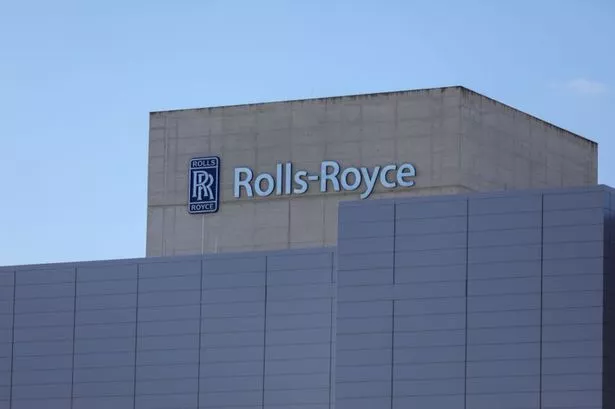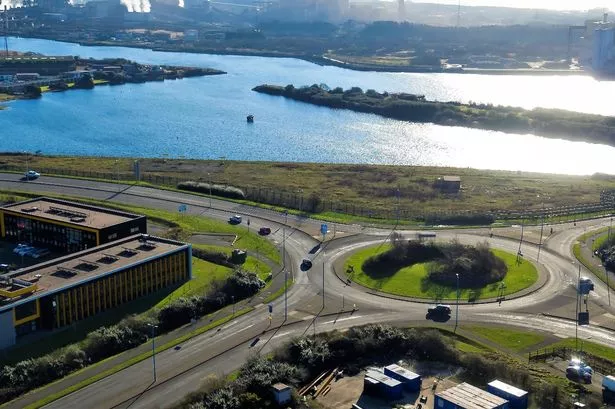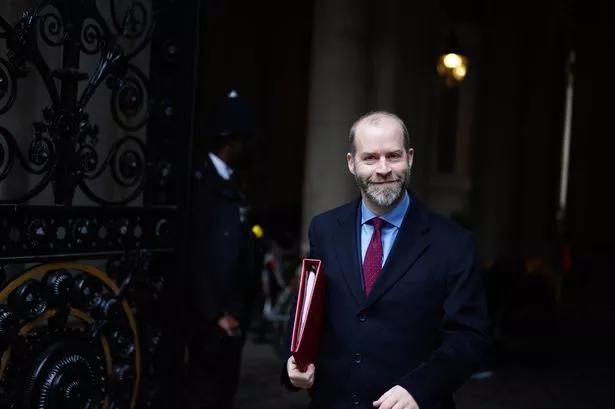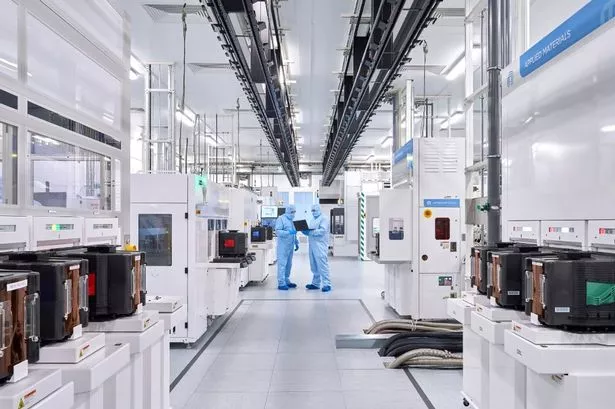
Rolls-Royce CEO's pay slashed by almost £10m despite huge rise in FTSE 100 shares
Tufan Erginbilgic, the CEO of Rolls-Royce, has experienced a significant reduction in his pay by nearly £10m, despite his successful turnaround of the FTSE 100 heavyweight. The Derby-based company's latest financial year saw Erginbilgic pocketing £4.1m, a stark contrast to the £13.6m he earned in the previous 12 months, as reported by City AM. His earlier remuneration was inflated by a £7.5m compensation for earnings lost from a former job. Another factor contributing to the drop was the decrease in Erginbilgic's annual incentive plan earnings, which fell from £4.6m to £2.5m. Rolls-Royce has now introduced a changed separate bonus and long-term incentive plan scheme for its CEO, with the first LTIP not due to vest until the end of 2026. In 2023, his hefty pay package placed him as the third highest earning FTSE 100 CEO, trailing only Astrazeneca's Pascal Soriot and Relx's Erix Engstrom. However, Erginbilgic's base salary did see an increase, rising from £875,000 to £1.1m over the year, with a further five per cent hike planned for 2025. A Rolls-Royce spokesperson said: “We delivered record results in 2024 thanks to our ongoing transformation, achieving our mid-term targets two years earlier than planned and enabling us to upgrade our guidance for 2028. It is in the interests of all stakeholders that such strong performance and progress is rewarded. UK companies must be able to attract excellent talent and reward them when they deliver.” The Turkish businessman joined Rolls-Royce in July 2022 and assumed his role at the start of 2023, following a two-decade stint at BP that ended in 2020. Since succeeding Warren East as Rolls-Royce's chief executive, Erginbilgic has seen the company's share price soar from approximately 150p to over 800p. A substantial portion of this surge occurred recently – jumping from around 610p to its current level – in the wake of the defence summit in London, where European leaders expressed their support for Ukraine and committed to increasing defence spending. At the culmination of February, City AM disclosed that Rolls-Royce had decided to restart dividend payments to its shareholders and announced a bold £1bn initiative for repurchasing shares after reporting annual profits that exceeded market forecasts. Rolls-Royce's CEO hailed for spearheading 'impressive progress'. In the company's annual report, remuneration committee chair Lord Jitesh Gadhia was quoted praising the leadership team's accomplishments: "Tufan Erginbilgic and the executive team have delivered continued improvement in performance levels with impressive progress made on the group's transformation, generating real value for shareholders." He elaborated on the future targets, saying, "Achievement of the medium-term guidance will take Rolls-Royce significantly beyond any previously achieved level of financial performance and we are on track to deliver the commitments ahead of schedule." Lord Gadhia also emphasised the importance of incentivising management: "We are determined to incentivise the management to build upon the progress made and maintain momentum."

Cardboard packaging firm DiamondPak in job creating £2m investment
Cardboard packaging specialist DiamondPak is investing £2m in new machinery to cement its position as the UK’s leading supplier to the e-commerce market in an expansion that will increase its headcount by 20%. The Pontypool-based business manufactures more than 50 million corrugated cardboard packages a year, much of which it supplies to leading global e-commerce businesses. DiamondPak is investing in new technology, including purchasing a new double-sided printing machine to help fulfill even more orders. The investment will help the business to grow further and allow it to employ up to 20 additional members of staff over the next couple of years. DiamondPak was founded in 2008 and is based in Skewfields, near Pontypool in Torfaen. It now employs more than 100 people and has an annual turnover of £15m. It designs, manufactures, assembles, and delivers a range of corrugated packaging from cardboard shipping boxes to promotional and protective packaging. The growth of online shopping in recent years, especially since the pandemic, has driven the e-commerce market to new heights. Figures show the UK is now the most lucrative e-commerce market in Europe, with an estimated 50 million users in 2024. The market is expected to grow by 7% over the next four years. DiamondPak chief executive, Russell Davies, said: “The UK e-commerce market is huge, and growing. DiamondPak is already the leading independent full line supplier of corrugated packaging to the e-commerce market in the UK, and this significant £2 million investment will help consolidate our position. It will also give us the enhanced capacity and flexibility we need to serve the evolving demands of the market in the coming years. “As a proud local employer in a region known for its manufacturing history, we’re especially pleased that this investment will help us grow our workforce even more, and allow us to create up to 20 skilled jobs in Pontypool.”

Aston Martin to pay top bosses more than peers after struggling to attract talent
Aston Martin is set to outstrip its FTSE 250 counterparts by offering higher remuneration packages to its top executives, following difficulties in attracting high-calibre talent in recent years. The luxury car manufacturer, based in Warwickshire, is considering boosting the bonus potential for its CEO and CFO from 200% to 250% of their respective salaries, as reported by City AM. In a statement, Aston Martin noted that "while this would position annual bonus ahead of UK FTSE 250 practice, it would take our annual bonus policy to median within our identified global luxury peer group and lower quartile against our automotive peers." The company conceded that it has faced challenges in talent acquisition "due to the lack of competitiveness of our reward packages" under its latest remuneration policy. It further stated that the enhanced bonus opportunity would "continue to be linked to stretching targets, ensuring maximum payouts are only received for exceptional performance across a range of KPIs [key performance indicators]." Additionally, Aston Martin is proposing a new hybrid long-term incentive plan structure which would merge existing performance share awards with new restricted shares "to better support the delivery of our strategy." CEO Adrian Hallmark, who took the reins at Aston Martin in September last year after serving as chairman and CEO of luxury car maker Bentley, is among those set to benefit from these changes. Prior to Hallmark's appointment, Aston Martin was led by CEO Amedeo Felisa since 2022 under the watchful eye of executive chairman Lawrence Stroll. Hallmark's remuneration for his initial tenure at Aston Martin amounted to £1m, comprising a pro-rata salary of £333,000, an annual bonus of £600,000, and additional benefits and pension contributions. This financial disclosure follows a report by City AM in February revealing that Aston Martin was set to eliminate 170 jobs as part of a cost-cutting strategy. The job cuts, representing five per cent of its global workforce, are expected to yield savings of about £25m. Concurrently, Aston Martin reported an annual loss of £289.1m and a three per cent decline in revenue to £1.58bn. The company's debt escalated by 43 per cent to £1.16bn in 2024, with shares dropping by roughly a third. In the annual report, Anne Stevens, the chair of the remuneration committee, wrote: "While our 2022 policy was designed with good flexibility and has proved broadly fit-for-purpose, we have faced challenges that the proposed 2025 policy aims to address." "Aston Martin, while a UK-headquartered and FTSE-listed company, is a global business and sources executive talent from global luxury and automotive companies." "Over 80 per cent of cars we wholesaled in 2024 were to our regions outside of the UK, and our executive directors frequently visit the regions and must navigate regulatory and political challenges across global jurisdictions." She continued: "The committee avoids targeting the median of any single peer group and would not rely on benchmark data for policy changes, instead we take a holistic view of UK and global reward practices." "While we have been able to secure recent key hires, we have faced challenges during the recruitment process, due to the lack of competitiveness of our reward packages, particularly our incentive opportunities compared to global luxury and automotive peers (where we have recruited talent from)." "A further reference point considered was the history of realised pay at Aston Martin since 2021." "While outcomes of our incentives over recent years have reflected the ambitious nature of the company and industry-wide challenges and therefore the shareholder experience, the committee is mindful that incentive outcomes have not reflected the significant efforts of the team." "This has resulted in our executive directors being underpaid relative to other senior leaders at Aston Martin, who receive a portion of their remuneration in restricted shares. "While incentivising performance remains our priority, we believe we would benefit from a revised incentive approach, to better align the senior team and to reflect practice of our global peers."

Plan revealed for £20m industrial research facility in Port Talbot
Plans for a new multi-million-pound industrial research facility in south Wales have been submitted. The proposed facility, named the South Wales Industrial Transition from Carbon Hub, or Switch, would be located in the Harbourside area of Port Talbot if given approval by Neath Port Talbot council, and is a part of the Swansea Bay City deal. It would see the creation of a £20m facility, designed and built by Morgan Sindall Construction, for a purpose-built research centre for de-carbonising the metal and steel industry. The project will be led by Neath Port Talbot council in partnership with Swansea University, with the proposed facility described as being an “open-access centre establishing a collaborative network of expertise across academia, industry and government, aiming to accelerate the region’s transition to net zero”. Once completed, plans say the building will contain a number of facilities such as workshops and welding zones, with mechanical testing zones and laboratory space, as well as offices, reception and breakout spaces for staff. Don't miss the latest news and analysis with our regular Wales newsletters – sign up here for free The plans read: “The new facility is a collaborative innovation centre working with academia, namely Swansea University as a key stakeholder, to help end users from the steel industry to decarbonise the steel industry towards a net zero carbon future. “The core theme of the Switch programme is to assist decarbonisation of the steel and metals industry, to strengthen collaboration between industry and academia and to future-proof the steel and metals industry in Wales and the UK. “The construction will consist of a mix of office space, laboratories, research and production area, storage areas and external works.” The submission, which was received in November, comes just months after the closure of the two blast furnaces at Port Talbot’s Tata steelworks site, which could result in the loss of more than 2,000 jobs. It also comes just weeks after the submission of further plans by Tata Steel for a new £1.25bn electric arc furnace to be built at the site.

UK Government launches new steel council
The UK Government has initiated a new steel council, which includes members from Tata Steel and British Steel, in response to the thousands of job losses experienced in the UK last year. The council is set to guide plans for the industry, supported by an investment of up to £2.5bn. Business Secretary Jonathan Reynolds, who will preside over the council's inaugural meeting today stated that steel communities have "had enough of lurching from crisis to crisis". The chief executives of of Tata Steel and British Steel, along with representatives from the GMB Trade Union and devolved government ministers including Welsh Government Economy Secretary Rebecca Evans ,are among the members expected to meet regularly. Last year, Tata Steel announced its decision to replace traditional blast furnaces with an electric arc furnace at its largest UK site in Port Talbot, Wales. Traditional steelmaking ceased in September, resulting in thousands of workers losing their jobs. British Steel also revealed plans to shut down blast furnaces in Scunthorpe in 2023, and to introduce a less polluting electric arc furnace. These greener plans, which require fewer workers, sparked concerns over potential thousands of job losses. The Labour UK Government has pledged to spend £2.5 billion "to rebuild the steel industry". This funding would be supplemented by a separate £500m package for Tata Steel to partially fund the new steel production at Port Talbot, where a £1.2bn electric arc furnace, which will make steel from scrap, is scheduled to open in 2027. The steel council, jointly led by the chair of Teesside's Materials Processing Institute, is gearing up for the spring release of the Government's steel strategy. This pivotal document is anticipated to outline means of bolstering UK steel production capacity and align investment choices with demands to fuel economic expansion. One critical topic on the council’s agenda will be how best to utilise the available funding, which may reach £2.5bn. “The industry and steel communities have had enough of lurching from crisis to crisis – this Government will take the action needed to place steel on a secure footing for the long term," asserted Mr Reynolds. "With the launch of the Steel Council we're placing workers and local communities at the heart of our plans as we bring forward £2.5bn of investment to secure growth right across the country. ” Gareth Stace, director general of trade group UK Steel, commented: "The establishment of the Steel Council marks a defining moment for the future of steelmaking in Britain." He added: "The council represents a crucial step towards creating a comprehensive Government steel strategy – one that lays the foundations for a sustainable and resilient industry." Roy Rickhuss general secretary of steelworkers' union Community, said: "Community is pleased to sit on the new Steel Council, which holds its first meeting today. After fourteen years of neglect under the Conservatives, we now have a Labour government which understands the importance of implementing a robust industrial strategy with steel at its heart. "We look forward to working with government and other stakeholders on the Steel Council to maximise the benefits of the game-changing £2.5 billion minsters have earmarked for revitalising our steel industry and providing the secure future our steelworker members across the UK deserve."

North East chip maker Pragmatic backs calls for Government to accelerate semiconductor sector
A North East maker of high tech semiconductors has backed calls for the Government to go further and faster with a national chips strategy. Pragmatic Semiconductor, which has bases in NETPark in Sedgefield and in Cambridge, has supported trade association techUK in its suggestion the National Semiconductor Strategy should be accelerated with measures such as an open access factory and helping to support more large scale private investment. The body's list of 27 recommendations in its updated 'UK Plan for Chips' follows on two years from the launch of the Government's strategy which hopes to put the UK in a world leading position on areas of semiconductor development. Bosses at Pragmatic, which is behind the multimillion-pound creation of new semiconductor production lines in County Durham, says chip manufacturing has significant potential to boost the economy but that investment in rival countries means the UK must "urgently" ramp up financial support for the sector. TechUK points to Pragmatic's opening of its new North East factory as one of 23 commercially successful fabrication facilities in the country. But it says that in contrast to the UK, other countries have provided manufacturing incentives to build factories - notably in the US, EU, Japan, South Korea and China. Authors of the report say the UK must capitalise on strengths in design and intellectual property, research and development and compound semiconductors. To do so they call for financial support, promoting investment and forging international partnerships in the supply chain - saying progress since the national strategy's launch has only been incremental and that decisive action is now needed. Laura Foster, associate director for Technology and Innovation, techUK said: "The UK has a unique opportunity to lead in the global semiconductor landscape, but success will require bold action and sustained commitment. By accelerating the implementation of the National Semiconductor Strategy, recognising its role as a key strategic technology and underpinning its importance within the Industrial Strategy, we can unlock investment, foster innovation, and strengthen our position in this critical industry. "We must act at pace to secure the UK’s semiconductor future and as such our technological and economic resilience." Richard Price, chief technology officer at Pragmatic Semiconductor, said: "techUK rightly emphasises the urgent need to accelerate the UK’s National Semiconductor Strategy. Semiconductors are the backbone of modern technology, and securing the UK’s role in this fast-growing industry is vital for economic growth, innovation, and resilience. "Core value creation lies in semiconductor manufacturing, which has significant potential to boost the UK’s economy. Europe and the US are already investing heavily; competitive incentives in areas such as capital investment are urgently needed to level the playing field.